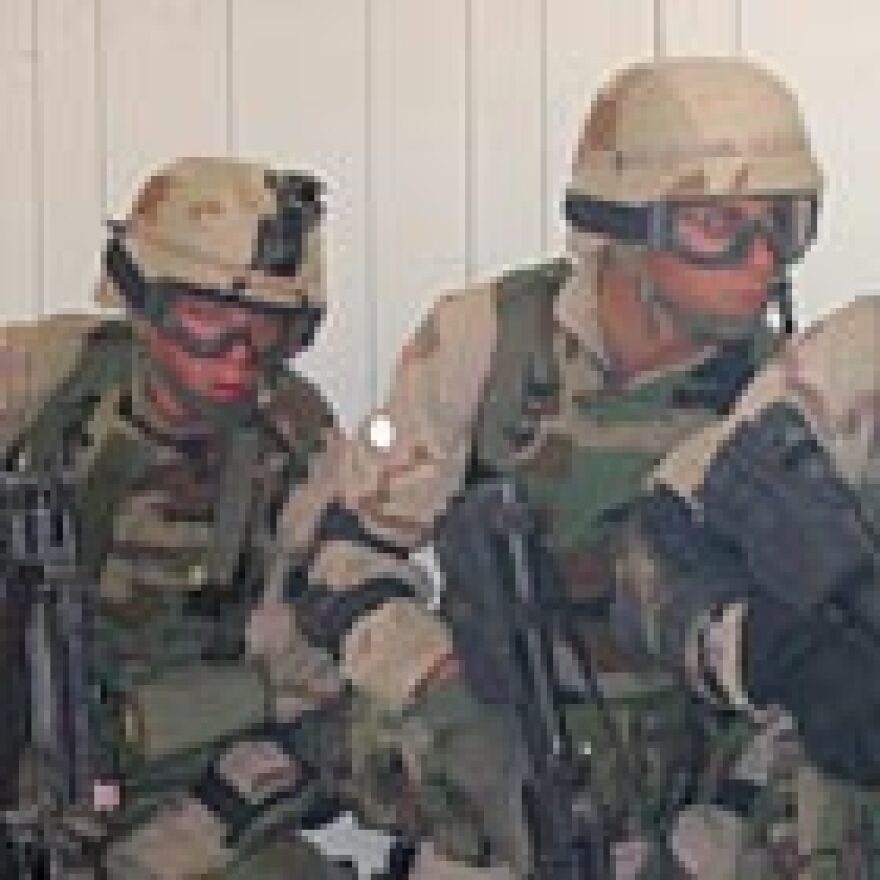
The growing U.S. military force assembling in Kuwait is busy honing its war-fighting skills. Elements of the army's 3rd Infantry Division are also practicing what some military planners say they most fear if war comes: urban, house-to-house fighting in Iraq's cities.
In a remote patch of Kuwaiti desert, the Army has built a "combat town" out of wood to train soldiers in the challenging task of urban warfare. NPR's Eric Westervelt followed Charlie company of the Army's 315th infantry regiment as they trained for something they hope never to encounter in real life.
"Distinguishing combatants from civilians in a city could prove one of the biggest challenges the U.S. Army faces in Iraq," Westervelt reports. "In this training zone, most rooms have 'friends and foe' targets painted on wood figures to replicate humans. When soldiers -- stacked tight against each other -- enter a room, they have to make a split-second decision whether to shoot or not."
Copyright 2022 NPR. To see more, visit https://www.npr.org.


